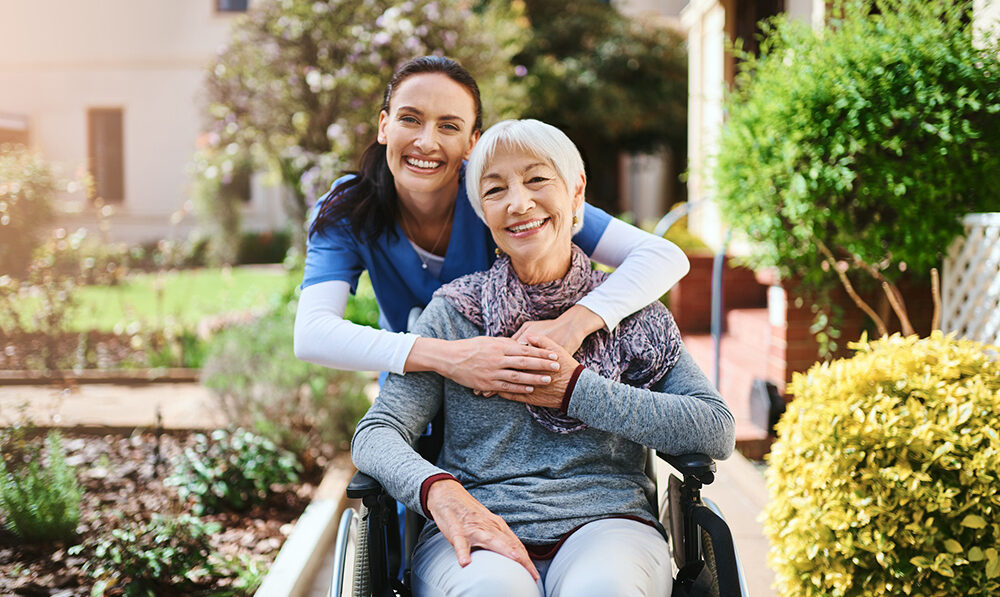The statistics may be staggering, but hardly surprising to those who provide long term care for seniors. Women caregivers are overwhelmingly, well, overwhelmed. Financially. Physically. Emotionally. Mentally. In addition to caring for their own family and job responsibilities, they are helping out with household chores, managing doctors’ visits, providing transportation and assisting with activities of daily living for a parent or spouse.
According to a report by the Family Caregiver Alliance, approximately 66% of caregivers are female. The average caregiver is a 49-year-old woman who works outside the home and provides 20 hours per week of unpaid care to her mother. Female caregivers may also spend as much as 50% more time providing care than male caregivers.
Financial impact
Women who provide unpaid long term care for seniors often have to make career adjustments, such as leaving the workforce, reducing hours, taking family leave, passing up a promotion, switching to part-time employment or retiring early. The immediate impact is significant.
However, women who return to the workforce when no longer providing care often have lower wages and fewer benefits. Reduced earnings mean less savings, Social Security benefits and retirement funds. A 2015 study found that the negative impact on a caregiver’s retirement fund was approximately $40,000 more for women than for men.
Hidden patients
Long term care for seniors affects caregivers’ health, too. The National Institute on Aging encourages physicians to view family caregivers as “hidden patients” because they tend to have a higher risk of physical and mental health issues, sleep problems and chronic conditions such as high blood pressure. NIA advises physicians to offer support and resources so that caregivers can address their own health issues and seek respite care.
Mental health challenges
The Family Caregiver Alliance also found that women who care for an older relative or friend have higher levels of depression, anxiety and other mental health challenges. Women who provided care for parents or spouses were two to six times as likely to suffer from symptoms of depression or anxiety than those who did not provide care.
The Country Meadows Retirement Communities “Be Kind to Yourself” initiative aims to bring awareness to the importance of self-care for mental health. Country Meadows encourages caregivers to embrace self-compassion with the following tips:
- Recognize caregiving is hard.
- Change your expectations to help ease your stress and make time with your loved one more meaningful.
- Find ways to stay connected to family and friends.
- Pursue interests to help you recharge and keep going.
For more advice from experts, 25 Ways to Be Kind to Yourself tips, downloadable coloring sheets and more, visit www.countrymeadows.com/bekindtoyourself
Professional long term care for seniors
For many caregivers, there comes a point when the financial, emotional and mental toll is just too much. A senior living community can help by offering families the peace of mind of knowing their loved one is well-cared for. In addition to providing personal care, communities like Country Meadows offer a home-like setting, but without chores like housekeeping, laundry or yard work. Transportation may be available to medical appointments as well as shopping, entertainment and places of worship. At Country Meadows, professionally-prepared restaurant-style dining and happy hours make it easy to eat well and enjoy time connecting with friends and neighbors. By allowing caring professionals to manage a loved one’s needs, family members can invest their time into building lasting memories instead.
Family caregiving at Country Meadows
Family is important at Country Meadows. Since 1962, the Leader family has been providing quality retirement services for seniors. Founded by former Pennsylvania Governor George M. Leader and his wife Mary Jane, Country Meadows Retirement Communities offers independent living, assisted living and personal care, memory support in neighborhood locations in Pennsylvania and one in Frederick, Md.
Call our friendly co-workers to learn more or to schedule a tour today!



